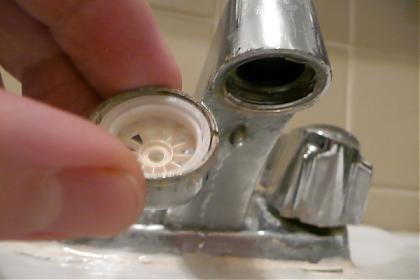Looking for a reliable plumbing service provider in Los Angeles to handle your emergency? Not having any luck? Then this article is for you.
First – Who is a Plumber or plumbing contractor?
A plumber or a plumbing contractor is a trained professional who installs and maintains systems and fittings related to drinking water and non-drinkable water (also known as sewage), both into and out of a building or dwelling.
An experienced plumber can handle anything from a simple faucet repair or replacement to installing a water heater or re-piping your entire plumbing system. Some people call their handyman when they need a plumber. But a handyman is not a plumber.
Plumbers need special training, sophisticated equipment and tools, and a valid state Plumbing Contractor’s license. Sometimes a handyman can accomplish some of the simpler plumbing tasks like plunging a clogged toilet or replacing a leaky faucet, but a handyman is neither experienced nor licensed nor does he have the specialized plumbing equipment necessary to handle complex plumbing issues.

So how do people find a plumber who has the right training, experience, licensing and equipment to handle their plumbing issue and not get ripped off?
Plumbing Service Technicians
To work as a plumbing technician in Los Angeles, one does not need a state plumbing contractor’s license. But he must work for a licensed plumbing contractor. Becoming a plumbing technician usually requires a high school diploma and up to five years of on-the-job training and experience.
A plumbing technician can operate a plumbing business but is not allowed to charge more than $500 for any job: if the job will run more than $500, a licensed plumbing contractor must be engaged.
A licensed plumbing contractor obtains certification from the state’s licensing board after extensive training and experience with all aspects of plumbing. Once certified, the licensed plumber may hire plumbing technicians to perform the work for him. These technicians do not need to be licensed: they work under the license of the plumbing contractor.
The licensed plumber will have knowledge of all plumbing systems, all the equipment and tools needed to do any plumbing job, and he will also need to be familiar with local and state building codes, necessary permits, and other legal requirements. He will also need to be insured for liability against damage to his customers and/or their property, and must also carry Workmen’s Compensation insurance to protect his employees.
Plumbers Should Carry Plumbing Fixtures and Replacement Parts
One of the first things to look into when looking for a reliable plumbing service is what kind of fixtures and replacement parts are they going to install in your home or business. Do they use genuine quality fixtures like Price-Pfister or Moen faucets, or do they use those cheap plastic faucets you can buy at Costco for $2.00?
If they’re going to install a new water heater, are they certified distributors and installers of the major brands – like Bradford White or Rheem, or are you going to be stuck with an inferior off-brand product?

Do they know about building code, obtaining building permits, and all the other necessary legalities to install your water heater safely? Don’t be shy to ask your plumber these questions before you hire them.
California State License
To operate a full service plumbing company, a plumber must obtain a license as a plumbing contractor from the Contractor’s State License Board. Obtaining this license requires passing an exhaustive test of plumbing systems and equipment.
The state contractor’s license must be kept valid and renewed in compliance with various state laws. If a plumber does not renew a license for a certain period of time (2 years in many states), he must retake the examination. It is your responsibility to make sure the plumbing company you are choosing has a valid, current state contractor’s license.
Insurance
Plumbing work can be dangerous. It is vital that you check to see if your plumber Is adequately insured.
The first type of insurance the plumber has to carry is liability insurance: if he accidentally causes damage to your property or your possessions while he is working, does he carry sufficient liability insurance to be covered so you can be paid in the event of a mishap?
Then the plumber must be insured for Workman’s Compensation: this means that if one of his technicians gets hurt on the job, insurance cover his treatment and recovery. These are important questions to ask any plumber when you interviewing them.
Bonding
Upon obtaining a state plumbing contractor’s license, a plumber must post a bond. The amount of this bond varies by state.
A Contractor’s Bond is a requirement for the issuance of an active license, reactivation of a license, and for the maintenance of an actively renewed. The bond must be filed to protect consumers against any damage they might suffer as a result of defective construction or other license law violations.
Requirements for the Contractor’s Bond:
The bond, in the amount of $15,000 (in California) must be written by a surety company licensed through the California Department of Insurance. Make sure that the plumber’s business name and license number on the bond correspond exactly with the business name and license number on the CSLB’s records. The bond must have the signature of the attorney-in-fact for the surety company.
The bond must be written on a form approved by the Attorney General’s Office. The bond must be received at the CSLB’s Headquarters Office within 90 days of the effective date of the bond. It is the consumer’s responsibility to make sure that your plumbing contractor’s bonds are compliant and current.
Equipment
Plumbers use a variety of complex tools, equipment and parts. Make sure your plumber has the newest equipment, all the tools necessary to do any job, and uses quality fixtures and replacement parts. His van should be well stocked, so you don’t have to sit home waiting while your plumber drives around trying to find or buy the right part.
If your plumber is going to do a major drain-cleaning job, make sure he has the latest Hydrojet equipment to blast away even the most stubborn obstructions. If you expect him to locate leaks concealed behind a wall or beneath a concrete slab, make sure he has the latest electronic leak detection equipment.
If he’s going to replace a part of your pipe or your sewer line, is he going to dig up the entire yard or does he use the latest in “Trenchless Technology” to replace or reline part of a piping system without doing too much disruptive digging.
Make sure your plumber has the right equipment: he cannot resolve your plumbing issue if he doesn’t have the right equipment and tools.
Pricing
The issue of pricing is another place where many people can be misled when selecting a plumber. If you call a plumber and he gives you a fixed price over the phone without examining your plumbing problem, you may be in big trouble.
How can anyone diagnose any problem without first seeing it? If you call a doctor, will he tell you over the phone what’s wrong with you and how much it will cost to cure you? No way – the doctor must first examine you personally, talk to you, and then prescribe the best treatment solution for you, based on your particular situation and your budget.
In the same way, your plumber must first examine the issue and then decide on the best way to resolve it. Only then can he tell you how much it is going to cost you.
Beware of plumbers who advertise a fixed price for a particular plumbing solution: they are just getting their “foot in the door” and if you have a major mainline or waste line stoppage, he is going to immediately up the quoted price.
Dispatch
One of the best tests of a plumbing company is to check their dispatch response time. Many times, customers call a plumber with an emergency, only to be put through to an answering machine or service, and you have to wait – sometimes half a day or more – to get a response. A good plumbing company will have electronic dispatch, and will be able to locate their plumber working closest to your location.
A good plumbing company should be able to dispatch a plumbing technician to your doorstep to arrive within an hour or two of your call, especially during normal business hours. You can expect dispatch to take a little longer after hours or on weekends and holidays. Ask if they operate an after-hours service, which is necessary if you ever have an emergency which can’t wait until regular business hours.
Customer Service
Customer service is another area where plumbing companies can distinguish themselves. Customer service involves much more than answering a telephone. In general, the customer service provided by many plumbing companies leaves much to be desired. If they don’t show up on time, there is no one to call to check what’s going on. If you need to change or reschedule an appointment for a service call, do you talk to a customer service rep or do you get put through to voicemail – which will only be retrieved later that day?
Does the customer service team have simultaneous access to the Work Schedule, the current Work Orders and all the individual plumbing technicians?
A good customer service department makes all the difference. Today, most good service companies use field service management software to manage everything from scheduling and dispatching all the way through to the final invoice.
Warranty
Does the plumbing company provide a written warranty? Is the warranty good on parts and labor? A written warranty provides you with an extra element of protection: if something goes wrong, you have some recourse.
Online reviews. ” Real Reviews Matter”
Then there are those online reviews. Go to your favorite site and read some online reviews. Don’t only use one review site – like Yelp. Many sites have fake reviews – fake good ones and fake bad ones. You should visit more than one review site and check out what others have said about this company. A company with 20 or more positive reviews, most of them with four or more stars, is probably a safe bet.
Referrals.
And finally there are referrals. Everyone you know has used a plumber before. Ask around: ask your neighbors, family members, or co-workers to recommend a plumber they have worked with and received good performance from. Ask your online social media network – your Facebook friends or LinkedIn contacts will always be happy to give you an honest referral.
If you use all these criteria, you can be sure of selecting a reliable plumber who will do a good job at the right price and leave you a satisfied customer.
Have an emergency plumbing issue?
Get a Plumber today and save 10% on all kitchen stoppages!




